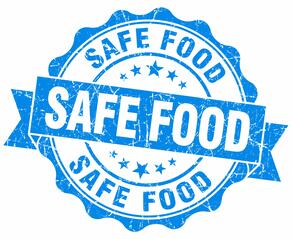Accidental poisoning and food-related illnesses are highly common, and many of these events can be prevented. In some cases, eating unsafe food or food that has otherwise gone bad is the cause of the food-related illness. In other cases, improper handling or preparation techniques can cause serious illness or even death in some cases.
By learning more about proper food safety techniques and strategies in your home, you can take steps to decrease the likelihood that you or someone you love will be affected by accidental food poisoning or a food-related illness.
- Buying the Right Food
One of the most important steps that you can take to help keep you and your family from suffering the negative effects of food poisoning or other related issues involves buying the right food. Grocery stores today generally go to great lengths to ensure that the food on
their shelves is safe for you to buy and consume, but that does not mean that their efforts are foolproof. They simply cannot guarantee that all of the food they sell is not past its expiration date or that it does not have other related issues that could result in a food-related illness if the food is consumed.
When you are buying food at the grocery store, take time to quickly inspect each item before you place it in your cart. Look for an expiration date on packaged foods. For fresh meats and other related items in the deli, look for a date when the items were packaged. Keep in mind that some meats that were packaged yesterday may be placed right next to meats that were packaged a week ago, so diligence to review each of the items you place in your cart is important.
For fresh fruits and veggies, ensure that all pieces you place in your cart are fresh. Avoid buying cans that are damaged, boxes that are open and food that has been packaged more than a few days ago.
Importance of a Clean Kitchen

In addition, you should take steps to properly clean your kitchen on a regular basis. It is common for individuals to wipe down kitchen counter tops on a regular basis, but ensure that you are using an anti-bacterial disinfectant both before and after using these surfaces. In addition, use a clean sponge or cloth for cleaning purposes. Sponges that are used repeatedly can easily be riddled with bacteria and other pathogens, so consider soaking sponges in bleach or replacing them often.
Other surfaces in the kitchen should not be neglected as well. The refrigerator, for example, should be thoroughly cleaned and wiped down every few weeks or every month. Microwaves, stoves and even trash cans in the kitchen should also be disinfected regularly.
The working surfaces, such as a cutting board, should also be cleaned before placing food on it. In addition, ensure that all pots, pans and other food preparation equipment is thoroughly cleaned before using it.
- Proper Food Storage
Keeping your kitchen clean is important, and it is equally important to store food safely. Some foods, such as dried cereal or pasta, can be placed on a pantry shelf in a sealed container, and these foods may remain safe for individuals to eat for several weeks or longer.
Other foods, however, must be refrigerated or frozen if they are not going to be immediately consumed. When items like fresh meat, milk, cheese and other related items are left sitting at room temperature for more than a short period of time, they can easily spoil or develop other related issues.
For each food item that is brought into the home, it is imperative that you take the time to learn about its food storage needs. For packaged foods, this often can easily be determined by reading the packaging. If you overlook an item and accidentally leave it sitting out for too long when it should have been frozen or refrigerated, you should throw it away and replace it.
You should also pay attention to the temperature settings of your refrigerator and freezer. The ideal setting is for a refrigerator to be kept at less than five degrees Celsius and for a freezer to be kept at minus fifteen to minus eighteen degrees Celsius. Overfilling the refrigerator can have a negative impact on the refrigerator’s ability to keep foods cool, so avoid overfilling it.
- Food Preparation Techniques
Just as certain foods will need to be stored in special ways, such as in a freezer or refrigerator, some foods will require special food preparation techniques. When it comes to preparing foods, you may understandable consider how the flavor or health of the food may be affected by different food preparation methods. However, it is important to note that food preparation techniques can also affect the health of the food.
Some foods, such as pork and raw eggs to name a few, are known to carry pathogens that can cause nausea, vomiting and even death in some cases. With these and many other types of foods, the food must be thoroughly cooked and should not be served raw in any way. Some meats may need to be heated to a certain temperature before consuming, and the use of a meat thermometer may be required to ensure safe food preparation techniques.
In addition, care should be taken to ensure that fresh foods that do not require cooking are thoroughly washed. Those who handle foods should also take steps to wash their hands and their work area before preparing foods. In addition, you should be aware that cross-contamination can result in health and safety issues in the kitchen. For example, when slicing raw poultry on a cutting board, the surface should be thoroughly disinfected before using that same surface to cut fresh vegetables.
- A Word About Leftovers
Many people enjoy saving leftover food from a meal to consume in the near future. Generally, these foods may be placed in a take-home container from a restaurant, in a Tupperware container or even in the containers they were cooked in with a seal or lid over it. Each type of food has a unique shelf life, so it is important to pay attention to the individual shelf life of leftovers.
It is a smart idea to develop a tracking system so that you can easily monitor how long leftovers have been stored in the refrigerator or freezer. Some people will simply place a strip of masking tape on the storage container and write the date when the food was prepared. In many cases, foods should not be stored in a refrigerator for more than five to seven days after being prepared, and some foods may only stay fresh and safe to consume for a day or two.
When you do reheat leftover foods, ensure that they are thoroughly cooked. Bacterial growth and other factors can develop on leftovers just as they can be a concern with unprepared foods. Finally, foods should only be reheated a single time before being discarded.
To know more about our services visit Nice Heating and Air.
 SEE OUR SPECIALS
SEE OUR SPECIALS SCHEDULE SERVICE
SCHEDULE SERVICE





 Call 703-884-2376
Call 703-884-2376


